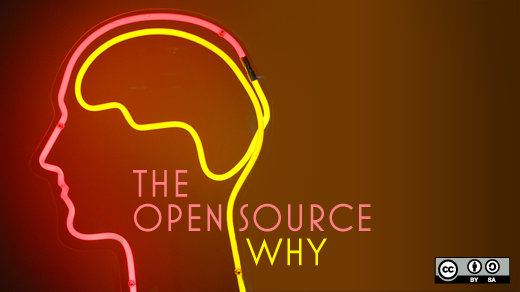For the vast majority of my career in the corporate world, I felt trapped in an environment that didn't work for me. The rules of that world seemed to contradict my core values—and I wasn't willing to compromise my integrity and core self for someone else to make a dollar.
On top of that, I've always been passionate about changing the world. Perhaps I'm abnormally optimistic in my belief that a collective of like minded people can get it done, but I believe this is the generation to do it. As I sought my place in these global change efforts, I discovered open principles and mindsets.
Now that was something that resonated with me.
So I launched a company that teaches others how to be more open. Here's how #TeamOpen is leading the way to realize global change through sustainable business models.
Coming home
I knew traditional organizations just wouldn't allow me to do my best work or even find a measure of fulfillment in helping others. When I first discovered open, I felt something swell within me: I had come home.
It all made sense. "Why hasn't business been this way all along?" I wondered—collaborative, skill sets being recognized and utilized within a team, meritocracy, a workplace utopia of sorts.
My decision to launch a consulting agency as an open organization was a very natural decision because it was the right thing to do. The five core principles of open organizations aren't just changing the way we do business. They're also the key to global change.
My colleagues and I at LDR21 are claiming this generation as Generation Open: A multi-generational workforce that desires the principles of openness to lead their personal and professional success.
Why open?
We are now members of a global workplace with a new set of values that drive us. Our organizations in mainstream industries have been stymied by old frameworks lacking agility, collaboration, and inclusion for sustainability. Workplace dysfunction is rampant due to poor or ineffective communication as departmental silos are often the norm.
Our workforce now includes four generations, each with its own set of influencers that drive us in our daily interactions. Each of the four require an understanding to manage, lead and to provide an attractive workplace environment.
To be sustainable today we must model open principles—transparency, adaptability, community, collaboration and inclusivity—in all of our interactions, both internally (in our own ecosystems) and externally (with our customers).
Let's look at one segment of the workforce as an example of why Open is important in any industry.
Employee engagement has been relatively flat for more than a decade, with 70% of US workers unengaged. What should really startle us is that of millennials, who are 38% of our workforce and on trend to be 75% by 2025, only 29% are actively engaged in their work. And 52% of them are seeking purpose at work more than they're seeking a paycheck.
The cost of Millennial turnover alone is $30.5B annually. If we apply this data to our respective companies, you can see how the cost to business and organizational health is staggering. In this one example alone, what are the costs to your bottom line?
Open as a solution
Developing a culture and organizational ecosystem based on transparency, community, collaboration, adaptability and inclusivity can catalyze change amid even the toughest organizational challenges.
Openness requires forethought and planning to determine customized operational frameworks. But it ultimately provides the freedom for organic growth, innovation, and a healthy ecosystem where employees can thrive. The benefits of an open approach are many. You will likely see increased engagement, clearer connection to purpose, a stronger sense of community and belonging to something greater, increased productivity, and diversity of thought—just to name a few.
Be a part of the change
At LDR21, this is what drives the work we do to help clients solve problems. As we say elsewhere:
We are passionate about open organizational mindsets because they create global change. The principles and frameworks impact our relationships, business and our understanding of our self-value. Once we adopt these values we see it impact our day to day lives in how we interact and lead in our homes and communities. Understanding our inherent values and strengths reduces our stress and fear about our place in our communities we operate within. As our confidence increases so does our performance as it ignites passion and innovation. We begin to connect differently with our world through transparency and inclusion. Collaboration shows us how we are interdependent on each other.Simply put, we are all in.
We invite you to be a part of promoting these core values in your communities, work spaces, and personal lives. Together, by implementing these principles, we can shift the tide of global change.






1 Comment